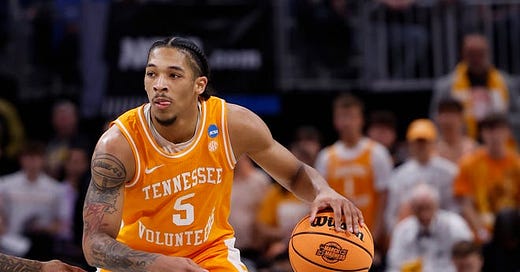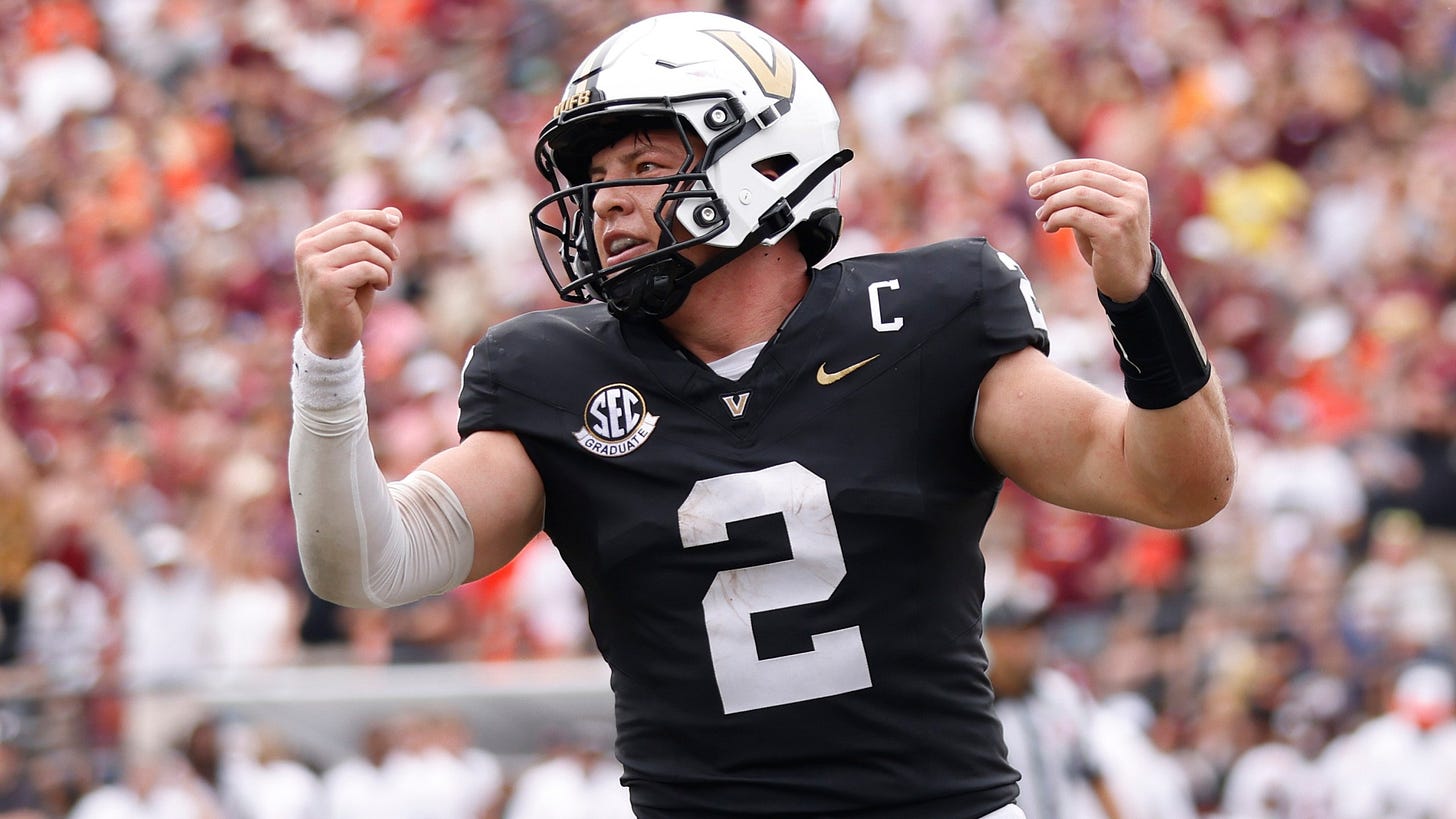It’s time to join the workforce, guys
College sports have undergone understandable eligibility tweaks in recent years. Still, as Zakai Zeigler's lawsuit shows, there are boundaries that shouldn't be crossed
Over the course of his legendary 22-year run as the Pittsburgh Steelers’ head coach, Chuck Noll was known for not only producing championship-winning teams that shaped an era for the sport and the identity of an entire city, but helping his players prepare for life after football.
“Your life’s work,” is how he’d often frame it to players, the thing that will define all of those years that await them once they take off their helmets, shoulder pads and cleats for the final time.
If you spend enough time in Pittsburgh, you become well acquainted with the phrase, making it the kind of thing that pops in your head during certain situations.
Over the past several weeks, I’ve thought about it quite a bit.
Zakai Zeigler was a pillar of the Tennessee men’s basketball program over the past few years, an all-American who helped lead the Vols to the Elite Eight in each of the past two seasons. When Tennessee was blown out by Houston in the national quarterfinals on March 30, one game shy of its first-ever trip to the Final Four, Zeigler, a senior who had just completed his fourth season with the program, had presumably played his final game for the Vols after a career in which he played 138 games across four seasons, none of which saw him take part in fewer than 30 games.
Fewer than two months later, that assumption was quickly and unexpectedly thrown into doubt.
Zeigler stunned much of the college sports world in late May when he sued the NCAA, challenging the organization’s five-year window for athletes to play four years of their sport of choice, which he argued is “an unlawful restraint of trade under federal and state antitrust laws.”
A U.S. District Court judge in Tennessee denied a motion for a preliminary injunction, noting that Zeigler failed to demonstrate that he would succeed in his argument that the NCAA denying him a fifth year of eligibility was a violation of the Sherman Act. Zeigler and his lawyer have said they’ll appeal the decision.
It’s the latest challenge the NCAA has faced over its longstanding eligibility rules, which have become more fluid, indecipherable and legally dubious over the past several years.
First, athletes who competed during the COVID-19 pandemic were granted a waiver for an extra year of eligibility, with the understandable, and often unspoken, rationale being that they were risking their own health in the middle of a once-in-a-lifetime situation – and doing so in front of largely empty stadiums and arenas – to keep their schools’ athletic departments financially afloat.
An added twist came last December, when another Tennessee-based college athlete, Vanderbilt quarterback Diego Pavia, was granted an injunction by a judge that temporarily allows him to compete after Pavia argued his years playing in junior college being counted against his NCAA eligibility clock violated antitrust law. The decision has opened the door for other former junior-college standouts to stretch their college careers longer than they had previously imagined.
In all, it has made college sports occasionally unrecognizable, not only because of the NCAA’s sudden fecklessness, but because of a visible effect on the on-field product. Rosters that used to be dominant by traditionally college-aged students now are peppered with athletes in their mid-20s who only a few years ago would have already been in the early stages of professional sports careers or what the NCAA marketing folks might describe as going pro in something other than sports.
Even in this rapidly evolving landscape, though, Zeigler’s lawsuit seems particularly specious.
Keep reading with a 7-day free trial
Subscribe to The Front Porch to keep reading this post and get 7 days of free access to the full post archives.





